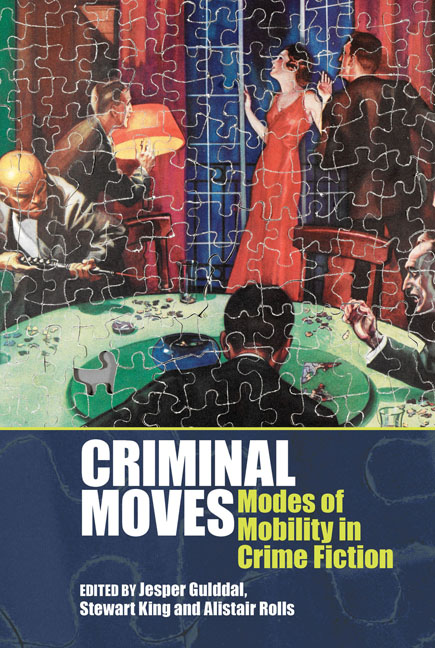10 - Brain Attics and Mind Weapons: Investigative Spaces, Mobility and Transcultural Adaptations of Detective Fiction
Summary
The adventures of Sherlock Holmes and John Watson begin at the end of Watson's personal mobility. He has ‘gravitated to London, that great cesspool into which all the loungers and idlers of the Empire are irresistibly drained’, with his health, and his career as a colonial medic, ‘irretrievably ruined’ (Doyle 2006: 14). Watson, curious about his new flatmate's profession, makes a list of his new friend's unique specializations and areas of ignorance – Holmes possesses a precise knowledge of London and the surrounding suburbs and an encyclopaedic catalogue of crime and chemistry, but knows little else (34). Holmes's unconventional occupation is revealed not in some dramatic conversation about a crime, but through his particular beliefs about the brain's ability to store a finite amount of information, like an ‘attic’ belonging to a ‘workman’ (32). Sherlock Holmes, with his carefully stocked ‘brain attic’, is a domestic detective and so his skills are described in domestic terms. The ‘attic’ is immobile; his skills are limited and specialized; and his knowledge of London's geography is not transferrable to another locale. He is so narrowly specialized that we (and even Watson) might say he is provincial.
The irony in calling Sherlock Holmes provincial is that his province, his region or specialty, is London as the Victorian imperial centre. Holmes is an ideal late-Victorian scientist taken to a distinctly un-Victorian extreme of specificity. And yet, this strange, provincial character is central both in imperial space, as London's superdetective, and in the international genre of detective fiction writ large, as a prototype of ‘the great consulting detective’. Holmes's empire over the genre is wide but the character’s abilities as a detective are decidedly narrow.
There is a parallel relationship between how a great detective's skills are described and how the space they inhabit relates to imperial-cultural centres. A Holmes-like detective whose investigative space includes a different type of space or place might choose a different metaphor than ‘brain attic’ to describe their investigative toolkit, as their relationship to their space is different. Adapting a genre's conventions or tropes to local conditions and conventions is a well-studied phenomenon. What is not often discussed, and what is revealed by these subtle changes to Holmes-like detectives, is the politics inherent in this practice.
- Type
- Chapter
- Information
- Criminal MovesModes of Mobility in Crime Fiction, pp. 179 - 194Publisher: Liverpool University PressPrint publication year: 2019



